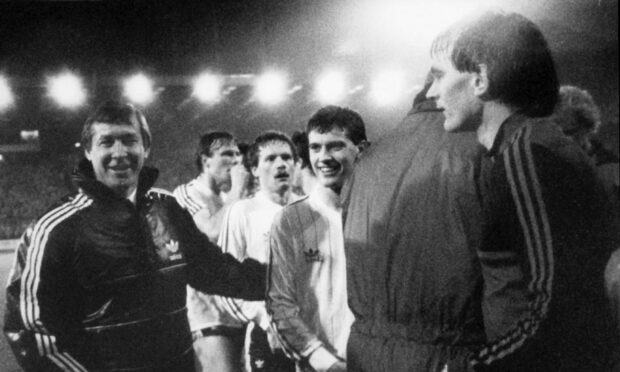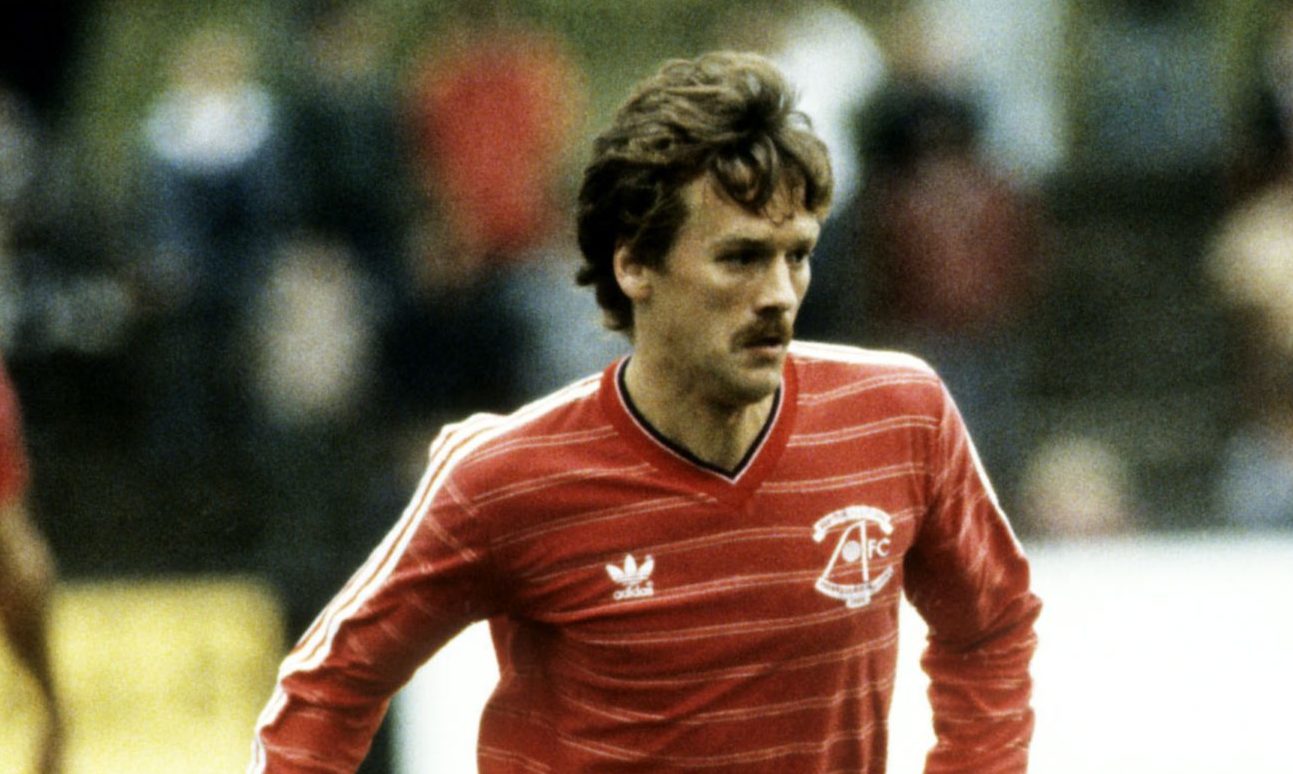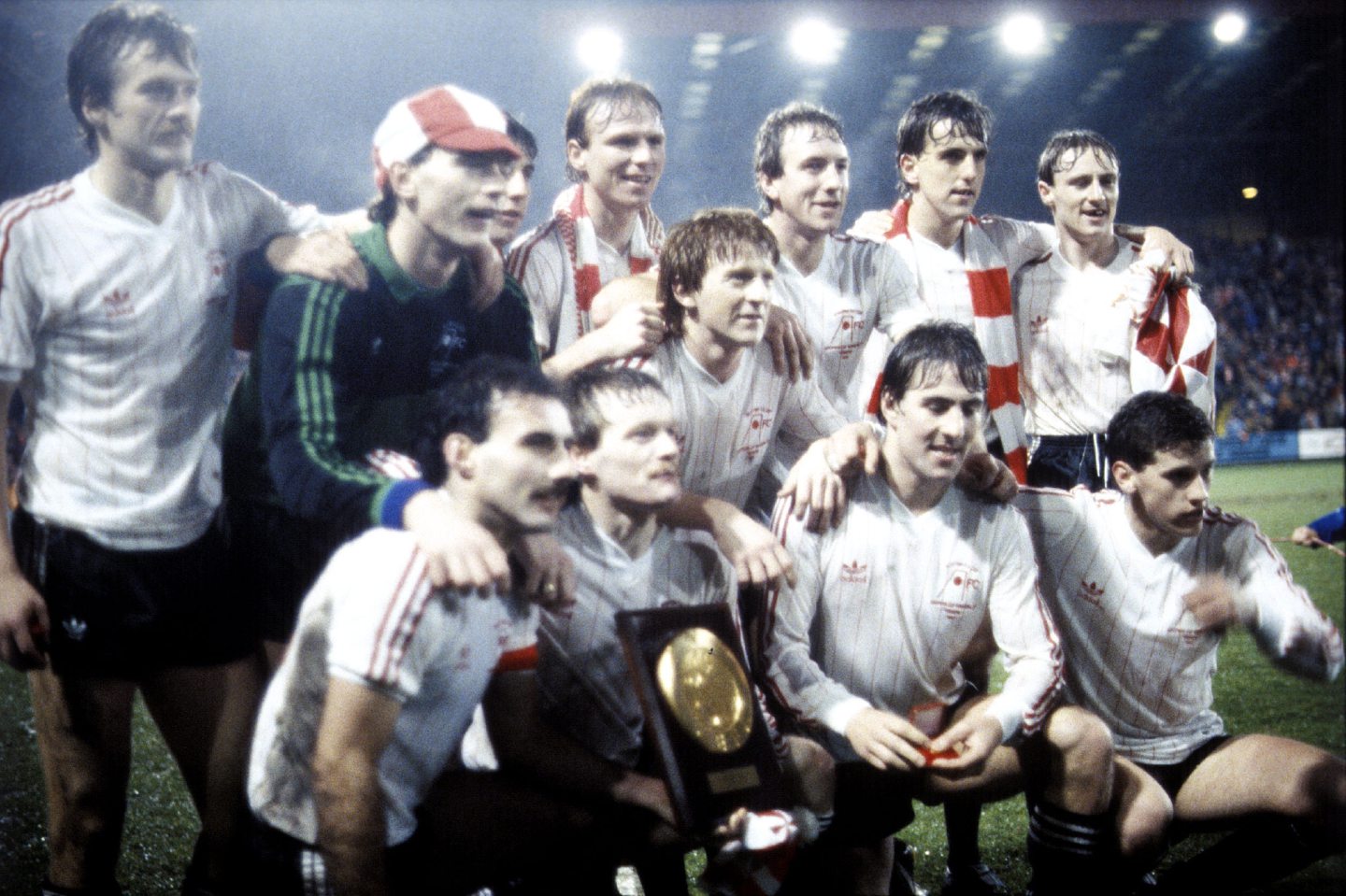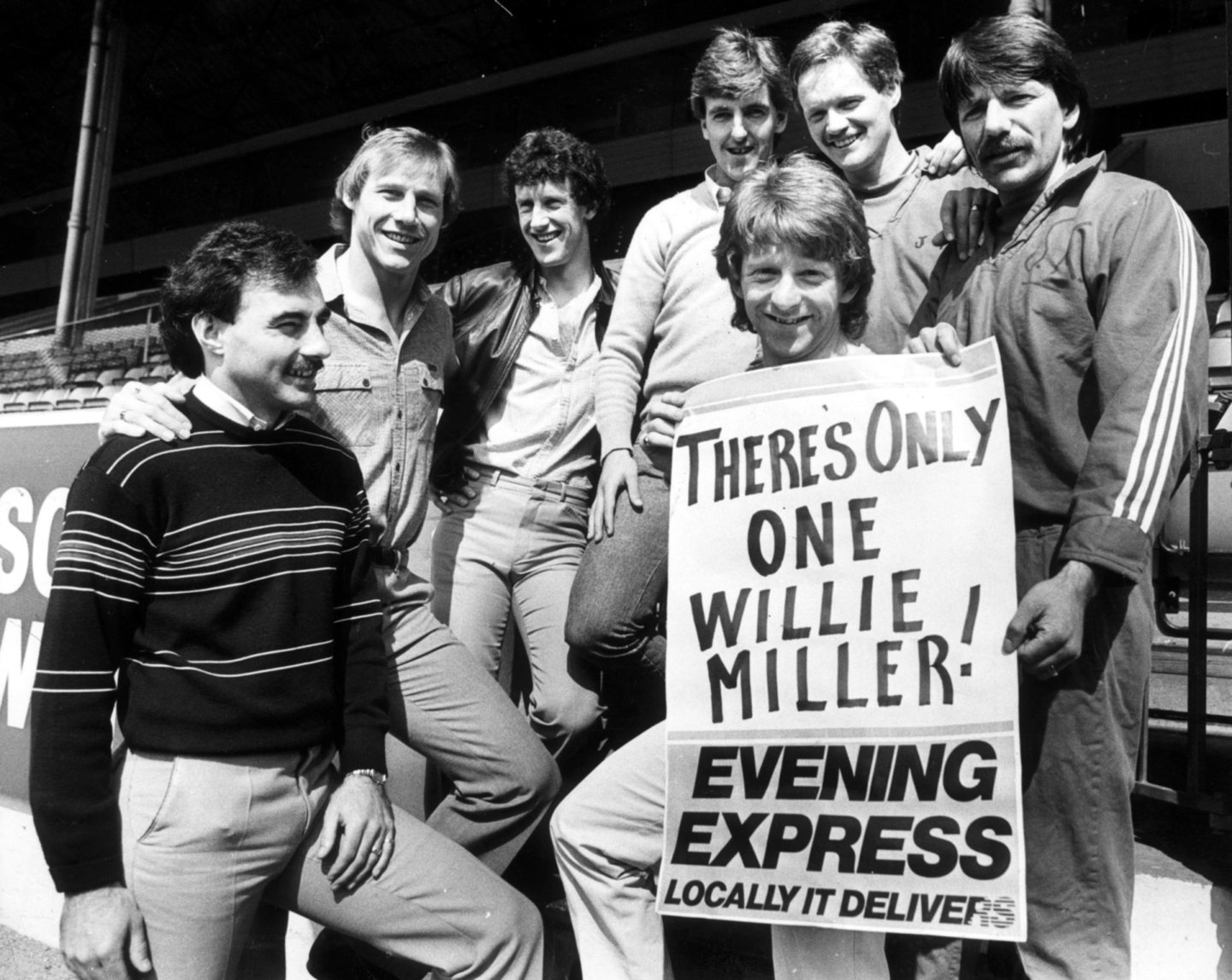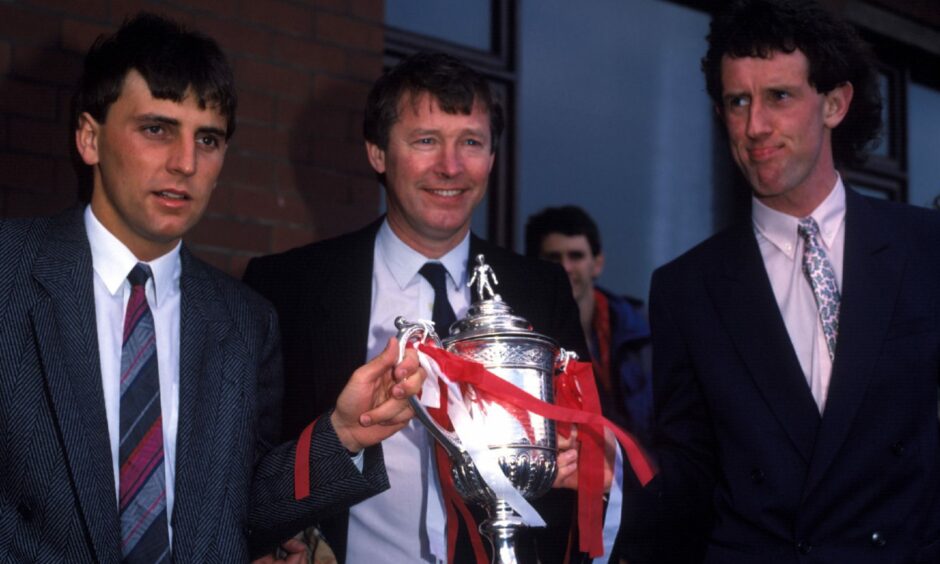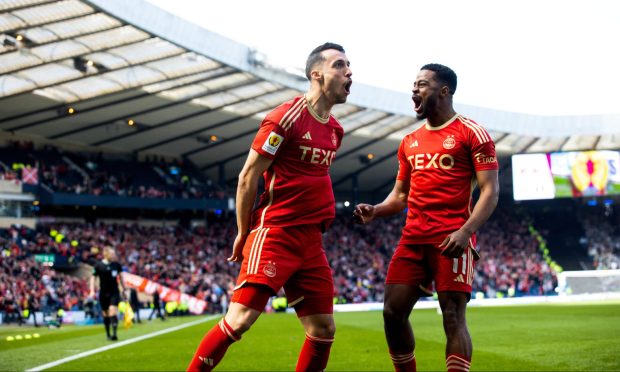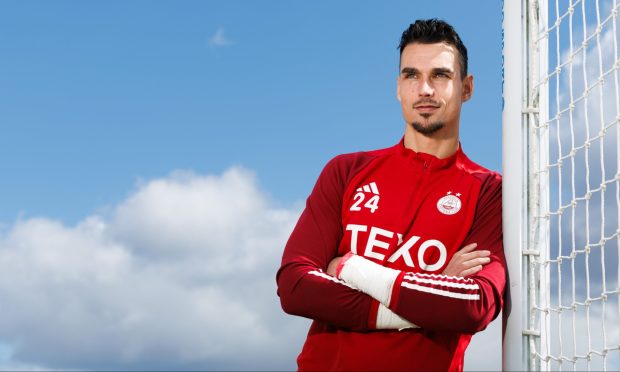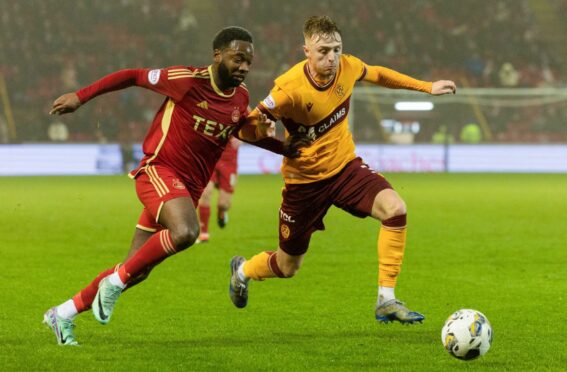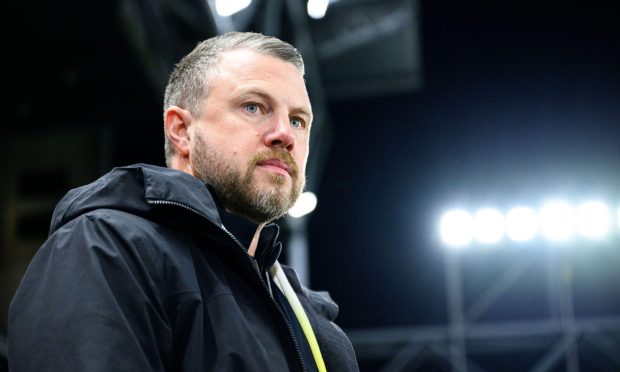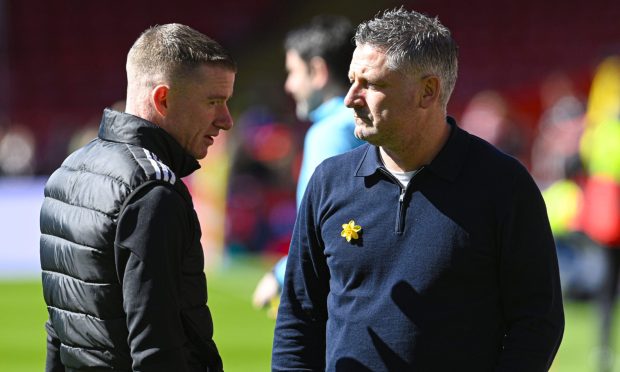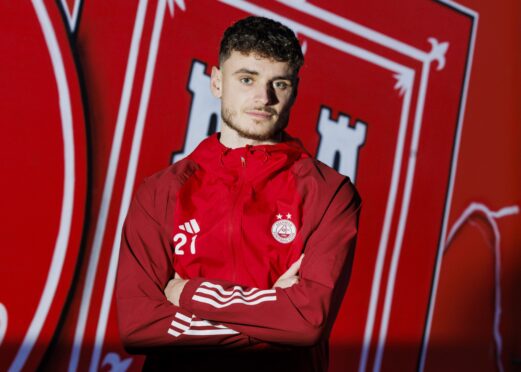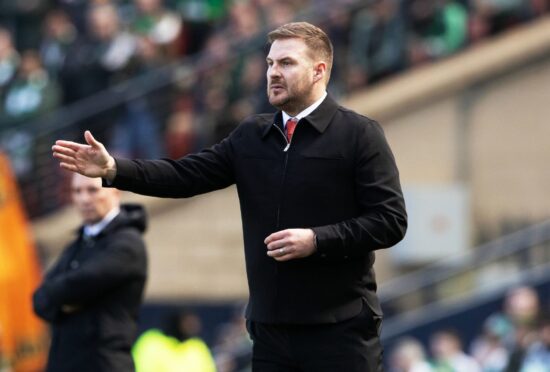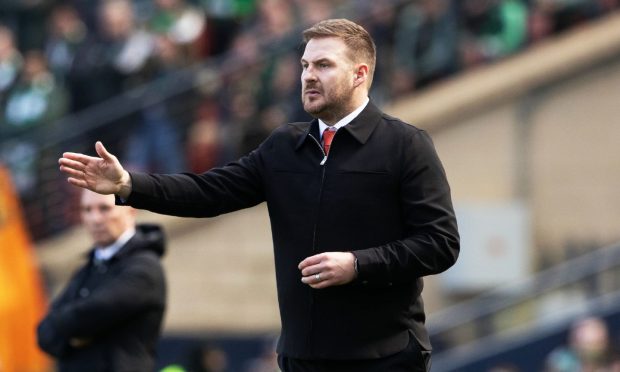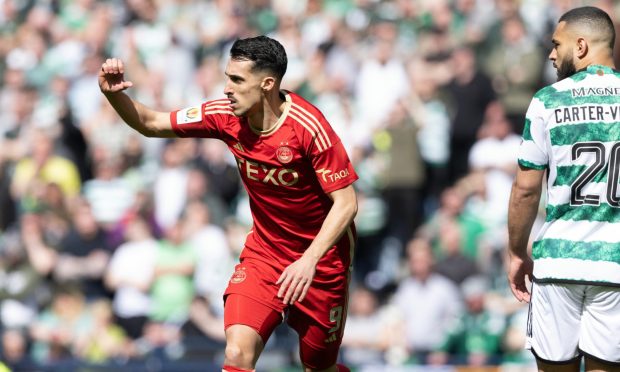There was so much euphoria in the aftermath of Aberdeen’s victory against Bayern Munich in the European Cup-Winners Cup in 1983 that it’s often easy to forget it happened in the quarter-finals.
All the details of the two-time comeback from adversity and remarkable turn-around in the Dons fortunes in the final 15 minutes of the Pittodrie contest have been chronicled in minute detail and the TV pictures are readily available to enjoy on YouTube and other social media platforms.
So, too, there can’t be many people who are unaware of the Gothenburg Greats and their achievement in beating Real Madrid in extra time in the final with John Hewitt’s header, which sparked an abundance of singing in the rain which had saturated the stadium throughout the climactic tussle.
But rather less focus has been expended on the semi-final tie against Belgian opponents Waterschei, a club who had progressed a long way from their origins in the 1920s when they were founded by local coalminers and were – in common with Aberdeen – only just breaking into the European realm.
In some circumstances, given the tendency of Scottish sports teams to veer between stratospheric heights and Stygian depths, there could have been concerns this would prove to be another case where besting giants such as Bayern preceded an almighty fall when Aberdeen were expected to win.
No secrets to Aberdeen’s success
And yet, this was a squad which was growing in maturity and adhering to the gruelling work ethic laid out by Alex Ferguson. Complacency was banished, Waterschei were analysed for any weaknesses, and the Dons once again demonstrated that genius is an infinite capacity for taking pains.
Often, these semis, fought out over two matches, become cagey affairs, motivated by the desire to avoid any negatives and eschew the adventurous. Nobody wants to suffer a drubbing and one of the phrases we’ve become used to hearing from managers at the end of the first leg is: “It’s only half time”.
But that option wasn’t available to Waterschei coach Ernst-August Kunnecke after he had watched his men being put to the sword by the Dons when the sides met at Pittodrie on April 6. In advance, he had spoken about the benefits of being involved with an unfashionable club. His rationale was that, if they stayed under the radar, they could turn their anonymity to their advantage.
Aberdeen ‘simply swept aside’ Waterschei
In theory, it had its merits. But, in practice, considering the destructive fashion in which Ferguson’s personnel bewitched, bossed and bothered the Belgians and established a 5-1 advantage after 90 minutes, Kunnecke was left in the unviable position of admitting that things were hopeless.
Or, in his own words: “It is finished. I don’t think there is any side in the world who could take four goals off Aberdeen. They simply swept us aside.”
As usual in that serried season, Fergie’s instincts were on song. He recalled Dougie Bell, an impressive figure in the initial battle with Bayern, but who had been left out for the second. Was that another piece of supreme man-management or, whisper it, a mistake? Whatever, Bell inflicted a heavy toll on Waterschei and, as one contemporary journalist described him, the “gangling, mercurial wizard of dribble” was in his element discombobulating his rivals.
The crowd had barely settled before their heroes surged 2-0 in front. Bell shimmied and feinted his way past frazzled defenders and fed on to Eric Black for the opener and Neil Simpson then survived three tackles before sending a low shot into the net. There were just four minutes on the clock.
When I spoke to former Aberdeen goalkeeper Theo Snelders a couple of weeks ago, he mentioned that the Dons never feared anybody back in the 1980s and early 1990s. It offered a reminder that, sometimes, you can be too respectful of your adversaries. And, by talking them up, you do yourself no favours.
Relentless drive of Aberdeen collective
The Dons never suffered from that problem under Ferguson. They were tested by Waterschei at regular intervals during the first half, but held them at bay, then increased their lead with Mark McGhee polishing off another extraordinary Bell foray. Even when Larus Gudmundsson cut the deficit to 3-1 in the 70th minute, there was no panic from the hosts.
On the contrary, they launched a fresh offensive in the closing stages and it yielded another brace of goals for Peter Weir and McGhee, the second of which featured an incredible scramble where the latter player, despite lying on the ground, had sufficient savvy to scoop the ball into the net. And Pittodrie, which was growing accustomed to these scenes, celebrated anew.
When I look back now at these momentous occasions, it’s impossible to ignore the juddering intensity and relentless drive of that Aberdeen collective. They had no anxiety or apprehension about routinely dominating and dismantling opponents. Either on the domestic stage or across Europe.
Madrid were Really impressed!
Waterschei attained a smidgin of revenge by winning the second leg 1-0, but the damage had already been done and everybody knew it, including the Real Madrid coach Luis Molowny, who was at Pittodrie that April night.
He said: “I was very impressed by Aberdeen and their ability, power and strength were awesome. We did not know too much about them, but if it turns out that we meet them in the final, I expect it to be a very tough game.”
Yes indeed!
